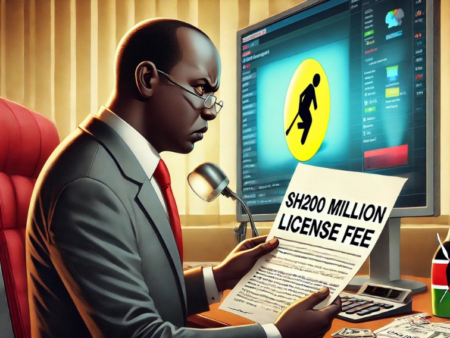Sports betting in Kenya has been growing ever more rapidly in recent years. This has come despite the Kenyan government imposing heavy taxes to regulate the industry and curb irresponsible betting.
According to a report by the BCLB, Betting, and Licensing Control Board, the number of licensed sports betting companies in Kenya has jumped to 100 from 76 in the space of a year. This translates to a 31.5 percent increase and is a clear sign of the ever-growing investment in sports betting in Kenya.
Heavy Taxes Fail to Make an Impact
Last year, the Kenyan government reinstated excise duty taxes on all betting stakes to 7.5 percent. This means that, for every Sh100 wager placed, the government takes Sh7.50, regardless of the wager’s success. Furthermore, the government placed a 20 percent tax on all winnings, as well as additional taxes on the betting operators themselves. This was meant as a deterrent to slow down the rapid growth of sports betting in the country to a manageable level. However, the jump in licensed betting companies appears to show that, so far, their efforts have had little effect.
Peter Mbugi, BCLB’s chief executive, claims that most of the new betting companies are owned by local Kenyans. These include Unibet, Mofabet, Zukabet, and Hollywood Bets. They add to an ever-growing list of Kenyan-owned companies. The most successful and famous of them has undoubtedly been SportPesa. SportPesa was able to pioneer dominance in Kenya early on before the tax hikes began. It was, however, targeted by the government following its huge success, and after lengthy court battles, the company managed to endure. Today it continues to grow in success, expanding its operations to other African countries, as well as entering the global market.
Major Government Revenue
In 2018, the government reported Sh204 billion in revenue from the gaming industry. Much of it they believed would not make its way back into the economy. Members of the government have long expressed concerns about sports betting. Many view it as a negative social impact on Kenyans, especially the poor and unemployed youth. A survey by the government showed that around 54 percent of bettors in Kenya are in a low-income area. Reports also show that around Sh83.2 billion has been spent on the M-Pesa payment processing platform alone by Kenyans over the past six months.
This has caused a jump in revenue for the operators, almost across the board. The KRA, Kenya Revenue Authority, has collected around Sh6.2 billion from M-Pesa facilitated bets.
The Kenyan government will likely increase taxes even further going forward. They can only continue in the attempt to regulate what has become one of Africa’s biggest sports betting industries. Many prominent members of the betting industry have tried to appeal to the government to work with the industry. Key figures in government, though, remain against it.
African Betting Market on the Way Up
Sports betting across the African continent is growing. Many governments have begun to benefit through appropriate regulation and licensing. The overwhelming impact of poverty and lack of jobs and infrastructure in much of the continent remains a serious and ever-looming issue. The boom in e-commerce being felt in Africa and around the world, however, has allowed many new opportunities to arise. Opportunities that can potentially lift the African continent into a new era of wealth and prosperity.
At present, much of the revenue generated by sports betting and casinos are lost due to the presence of foreign companies. However, with more and more African-based companies popping up and reaching success, this may soon change. At its current rate of growth and success, Africa, as a continent, has the very real potential of becoming a leader in the global betting industry.
The positive side of Kenya’s strict policies and taxes on betting is at least a clear message. If the sports betting and casino industry is to continue to grow, it must at the very least, always be giving back to Kenya’s economy through taxes.

